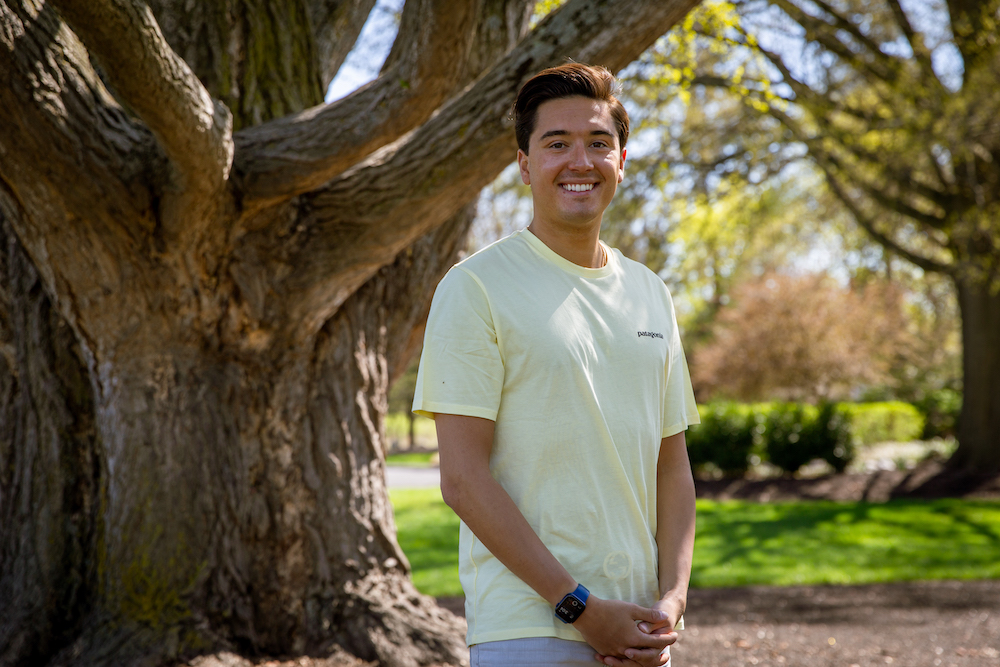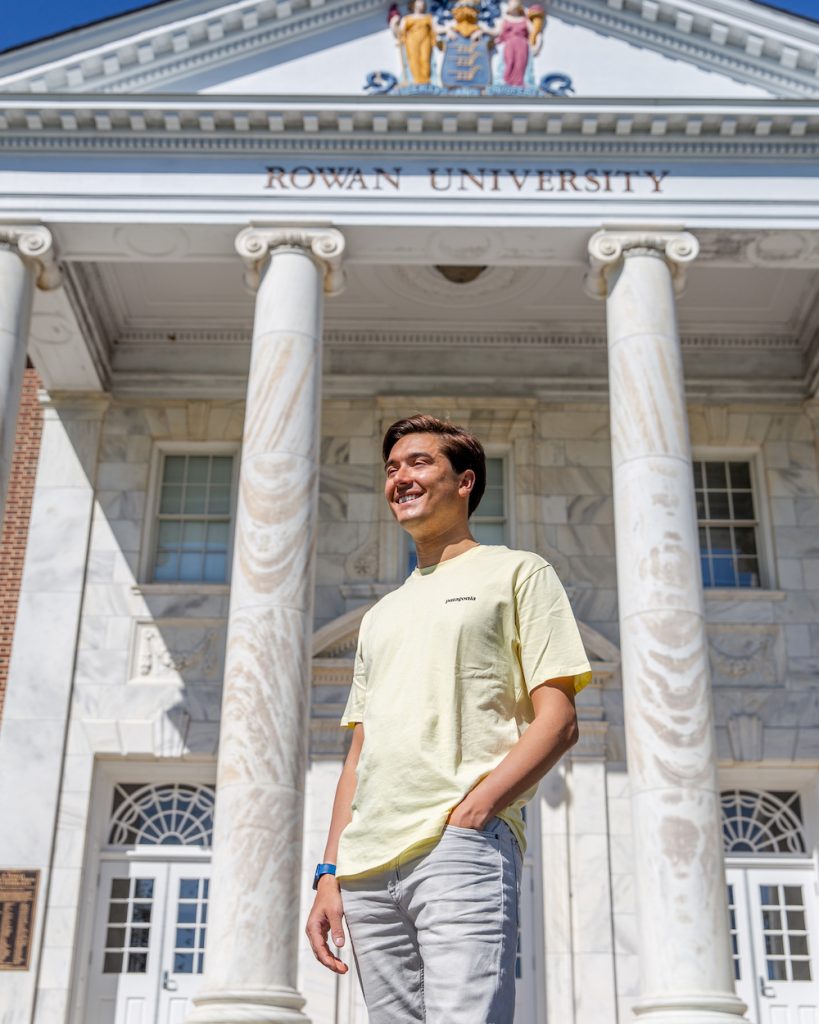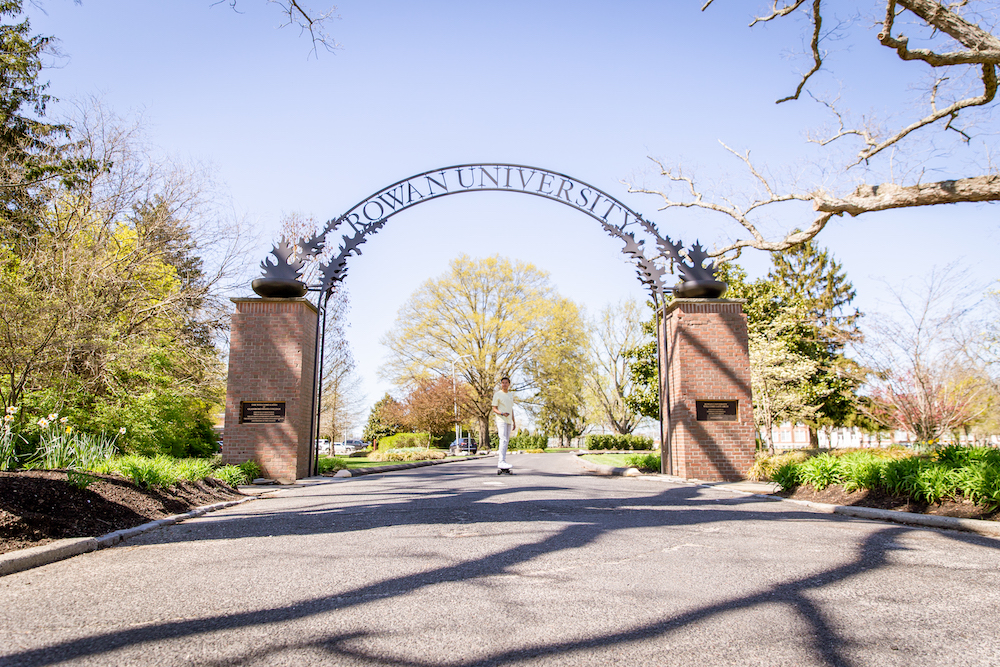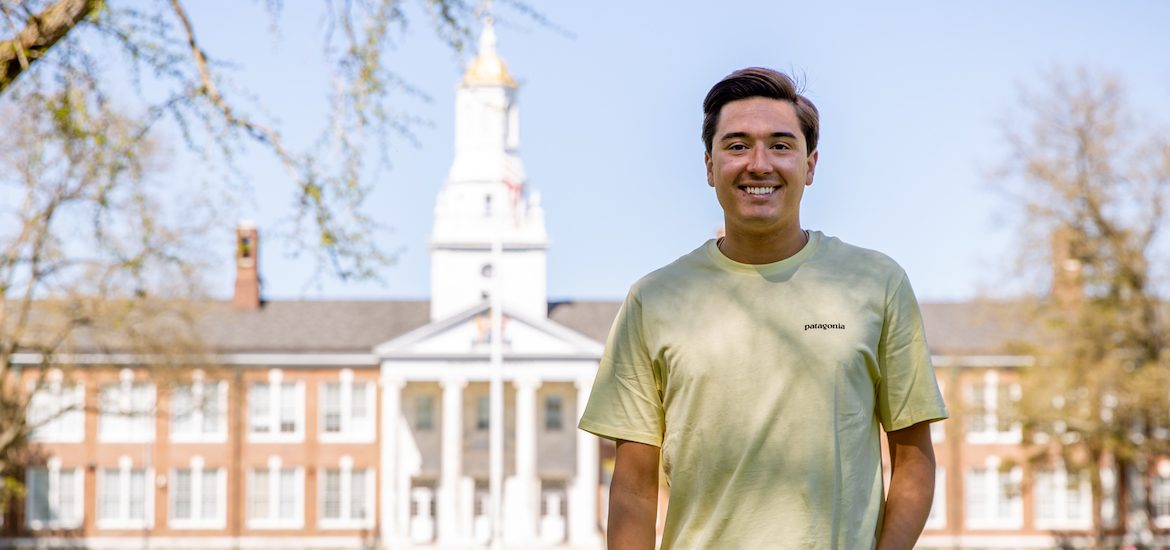Today we speak with recent graduate Anthony Raisley. He earned a degree in History with a concentration in U.S. History and multiple minors in Entrepreneurship, New Media, International Studies as well as a CUGS (Certificate of Undergraduate Studies) in Italian! Anthony comes from Middletown, NJ in Monmouth County and lived on campus all four years of college.
Tell me about your favorite class at Rowan.
There are a few! I have a favorite class for [each of my concentrations]. As far as History courses, one of my favorite classes was the U.S. Since 1945. We studied recent history. That’s my favorite period of American history, post-World War II and on to the present. Even now, I’m taking a class with Dr. Jennifer Janofsky called American Material Culture, it’s an aspect of history that a lot of people don’t realize — for example, the music, decor, and clothes.
A lot of people think of History majors and history in general as date-oriented or event-oriented, but there’s so much more to it. The development of different things is also part of history. I find that class very interesting because it’s basically from the Civil War and on.
Can you share why history is relevant to people who are not History majors?
For example, we can look at technology and how much of a role it has played in our lives, and its development. Fifty to 60 years ago, the refrigerator, oven or microwave were just starting to develop. Now we obviously see with our computers or phones just how that has certainly changed over time. The computers were massive, and now we basically have a computer in our pocket.
I think it’s important for non-history majors to realize that we live in history, and we’re living through it now (obviously with Covid). It’s certainly all around us. Even in car culture, there’s so much technology now within cars, the role of cars, and how that has changed in the development of our neighborhoods. [There is] so much around us that a lot of people don’t realize is history.

Do you ponder on the sociological impact of technology in history?
The first [TVs were in] black and white, now we have color TVs. Now the TVs are even smaller, thinner and bigger. Just the channels and the content you can watch [now] have expanded over time. There used to be only six or seven channels 40 years ago; now we have over 500. There are so [many] things out there for people to see and learn.
What makes the professor of this class so wonderful?
She’s been teaching this class for a while so she’s very knowledgeable. This is her area of expertise. She really connects it to the present as well. It all ties back to the present. We actually just did a class discussion on the Coney Island Amusement Park. Over a hundred years ago when Coney Island first opened up, it was a totally new concept. Now we [have] places like Six Flags. A hundred years ago that would have been a totally foreign thing.

How did this class help to support your academic or professional growth?
I really like public history because of this class. I had never taken too many courses focusing on public history, especially on material culture. I think that definitely prepares me for my master’s degree next year. It’s a great foundation and will help prepare me going forward.
Where do you see yourself in the future?
I hope to work in communications for either a private company or for public officials in the government. I see myself working in media, [although] I’m not entirely sure [on the specifics] yet, but I [have] a general idea. Most likely for a public official doing communication or research for them. I think that’s something that I see myself doing since I’m going to be down in DC.

Like what you see?
Story by:
Marian Suganob, public relations and advertising graduate
Photos by:
Stephanie Batista, junior music industry major



